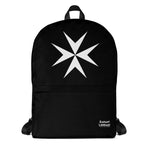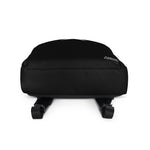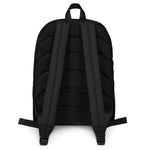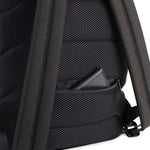Ordo Fratrum Hospitalis Sancti Ioannis Hierosolymitani, also known as the Order of the Hospitaller Brothers of Saint John of Jerusalem or the Order of the Hospitaller Knights is a Catholic Order that was founded for charitable and purely pious purposes, to later become an armed corps that acquired great fame for the acts of war in which it participated.
The origins of this order of chivalry date back to 1048, when friars from the city of Amalfi, in the kingdom of Naples, asked permission from the Caliph of Egypt to found a hospital and a church for pilgrims, called Saint Mary of the Latins at first in a house, in front of the Church of the Holy Sepulcher, on what is believed to be the old house of Saint Zachariah father of Saint John the Baptist and hence its name.
The order adopted the rule of Saint Augustine, using black habits with an eight-point white cross, that represents the eight beatitudes. Once the Order of Saint John of Jerusalem became a military force it continually intervened during the crusades. Later, the order changed its overcoat for a red with a white cross.
After the conquest of the Holy City by the crusaders in 1099, the founder and first master of the order, Gerard Tum, decided to extend the work to Palestine, Syria and Europe itself, covering the route of pilgrimage to the Holy Land with hospitals.
Even with the success of the First Crusade, the dangers that characterized this period led to the consolidation of the military character of the Order, to which the Holy See was initially reluctant.
However, the Order received recognition from Pope Paschal II in 1113 through the bull Geraudo institutori ac praeposito Hirosolimitani Xenodochii.
When Raymond du Puy, became the second Grand Master, the Order took its military character. In 1140 a kind of elite force, was created among its members, a special class of protectors, to keep the doctrine, norms, and principles of the Order. It is convenient to clarify that this military order is not the first, since in its beginnings it was only religious, and after the formation of the Templar Order, they imitated it and become a military force.
The knights were religious and were subject to vows of poverty, chastity, and obedience. The Hospitallers as well as the Templars are considered by the pontificate as Universal Orders, this means only subject to the Pope and not to any other Order, King or government, unlike the: the Teutonic Order or the Spanish orders of Saint James of the Sword, Calatrava or Alcántara.
The Knights Hospitaller, became as powerful as the Templar Order. and along with them, had many important military victories such as the Battle of Montgisard and Arsuf.
Subsequently, with the fall of Jerusalem in 1187, by Saladin, the order was forced to move to alternate fortresses in Palestine, such as the Krak des Chevaliers and to Saint John of Acre. Along with the Templars, they continued to wage war. In 1291, the sultan of Egypt undertook a great offensive to drive out the Christians definitively. The army made up of knights from the orders of Saint John of Jerusalem and the Order of the Temple fought fiercely, but finally, had no choice but to embark for Cyprus. With the order reorganized, the reconquest of Palestine was attempted again, and even Damascus was taken, but finally the effort proved to be too complicated.
After the conquest of the island of Rhodes, its members became Knights of Rhodes and after the transfer of the archipelago, they became the Knights of Malta, since it was in Malta where it had its headquarters and also became famous for slowing down the Ottoman advance in 1565.
Currently, the order regained its original purpose and focuses on its hospitals, care for the poor, and humanitarian missions. It is made up of more than 13,000 men and women and approximately 80,000 volunteers and 42,000 workers, most of them health professionals. Along with the tradition of nobility, to be accepted as a Knight, a candidate must live an exemplary Christian life and make merits towards others and the Order.
.
• Made from 100% polyester
• Dimensions: H 16⅞" (42cm), W 12¼" (31cm), D 3⅞" (10cm)
• Maximum weight limit – 44lbs (20kg)
• Water-resistant material
• Large inside pocket with a separate pocket for a 15” laptop, front pocket with a zipper, and a hidden pocket with zipper on the back of the bag
• Top zipper has 2 sliders, and there are zipper pullers attached to each slider
• Silky lining, piped inside hems, and a soft mesh back
• Padded ergonomic bag straps from polyester with plastic strap regulators
















